Smoke coming from the wheel well is a strange situation for most car owners to face, and it can be stressful especially if you don’t know what caused it. But it doesn’t have to be this way forever. We've researched the possible reasons so you'll be able to determine the cause and find a solution that will get you back on the road quickly.
It is very common for smoke to form around a wheel well due to the temperature difference between the hot metal and the cooler atmosphere outside the vehicle. However, you may consider the following possible causes if you notice that the smoke is becoming thicker in volume and density:
- Burning tires
- Leaking oil
- Leaking coolant
- Sticking brake caliper
- Damaged axle bearings
- Worn cam chain tensioner seal
If your wheel well starts to smoke, there's a good chance it's caused by an underlying mechanical issue. Read on as we provide you with a thorough explanation of each of the possible reasons outlined above so you can fix your car and drive with peace of mind.
What Causes Smoke To Come Out of My Car's Wheel Well?
A simple question, but one that could potentially cost someone their life if they don't know the answer. Smoke coming out of a car wheel well could be an indicator of a serious automotive issue.
It's not something you want to ignore, as it could be an early warning sign of a bigger problem. The following are the most common causes why smoke can come out of your wheel well:
Burning tires
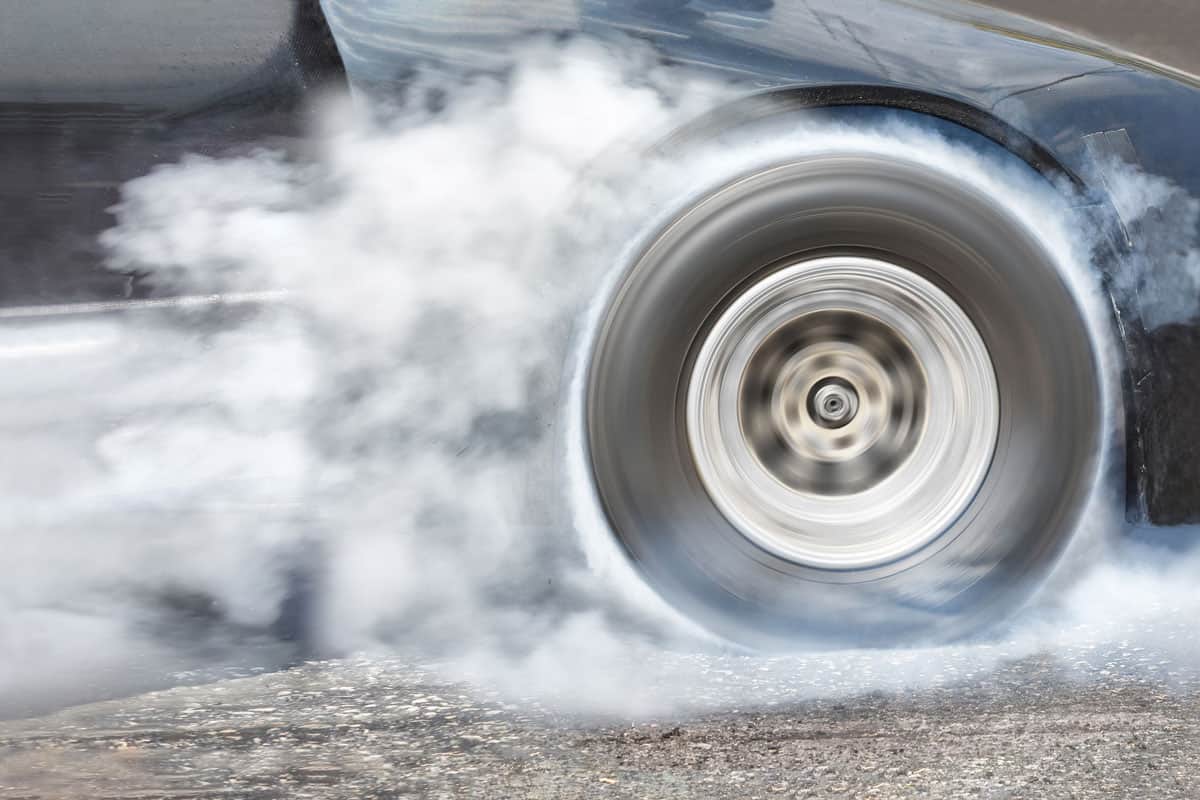
When a car moves and the tires get into contact with asphalt, there will be friction between the two surfaces. In order to dissipate the energy absorbed from this friction, the rubber molecules break down and release energy as heat in the form of smoke. This heat is what causes the rubber to smoke.
Valve cover leaks/distributor leaks
Engine oil leaking out of the valve cover or distributor and dripping down onto the exhaust is another possible reason why you have smoke coming out of your wheel well. When engine oil touches an extremely hot surface such as your car's exhaust, it will burn the oil thus the smoke.
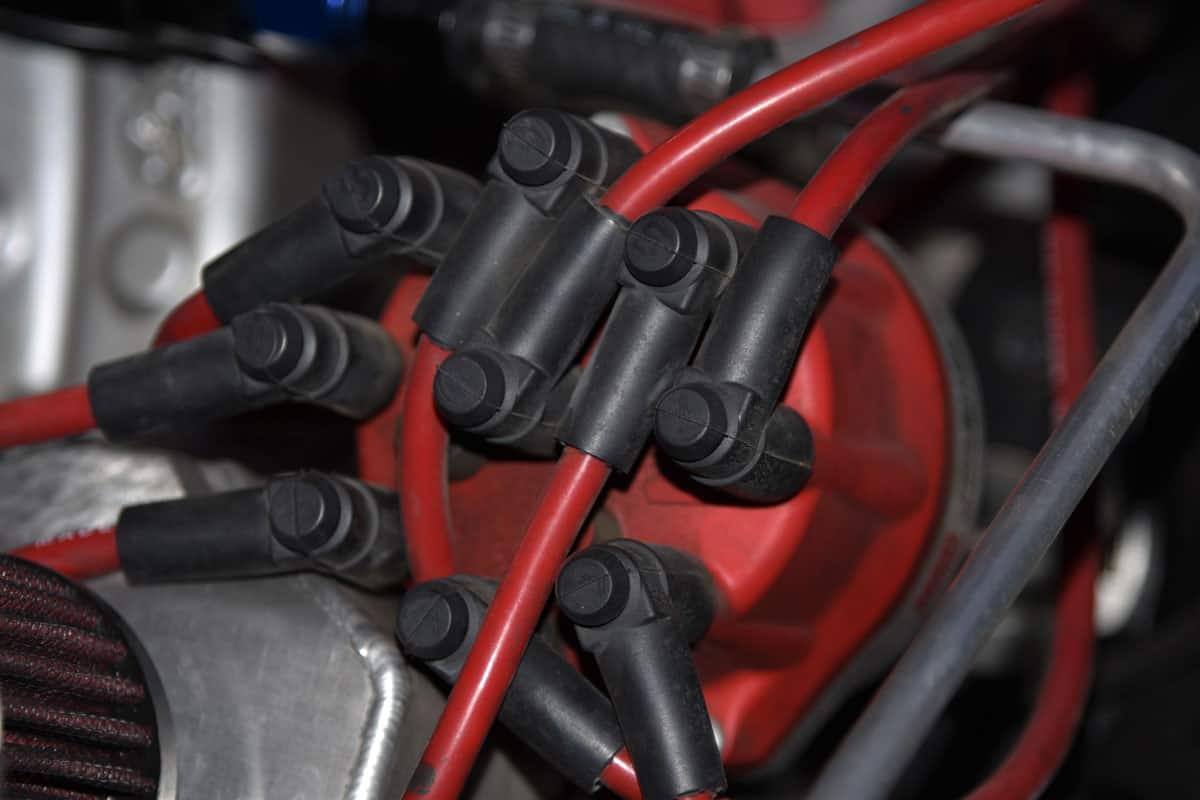
Leaking bypass hose
Aside from leaking oil coming into contact with the muffler, a worn bypass hose that is leaking coolant onto the exhaust could also be the culprit.
When you see smoke coming out of the wheel well of your vehicle, you may not be sure if it's caused by an oil leak or a coolant leak. One thing is for sure though: any fluid touching the hot muffler is most likely to get burned and produce smoke.
So it's just a matter of determining the cause of the problem before your car starts smelling like a campfire. You'll have to do some detective work, but luckily, it's not as difficult as it sounds.
You can easily tell if it's the coolant or oil burning by the smell. A burnt coolant smells sweet compared to the irritating smell of burnt engine oil.
Sticking brake caliper
A lot of times when mechanics look at cars and are trying to figure out why smoke is coming out of its wheel wells, they look at the brake system, especially when there is a lot of smoke.
Brakes consist of a rotor, shoes, and calipers. When the brakes are applied, the shoes slide up and down the rotor and act as friction brakes. These brakes wear down and the shoes need to be replaced periodically.
Needless to say, brakes need to be properly adjusted for optimum performance. A sticky brake caliper causes excessive heat inside the master cylinder due to friction, which causes vapors to form.
The smoke signals overheating, and the overheating can cause the rotors to seize up, which can lead to catastrophic damage to the vehicle's braking system. A sticky caliper can also cause serious safety issues if it becomes jammed.
If you see smoke coming out of your wheel well and feel like your car's brake caliper is jammed, then watch the video below.
What causes a brake caliper to stick?
There are many things that can cause a brake caliper to stick. It's important to note that the most common problem is that of lack of lubrication. In addition, dirt, dust, grease, and other substances can get into the brake caliper, which can cause the brakes to become stuck.
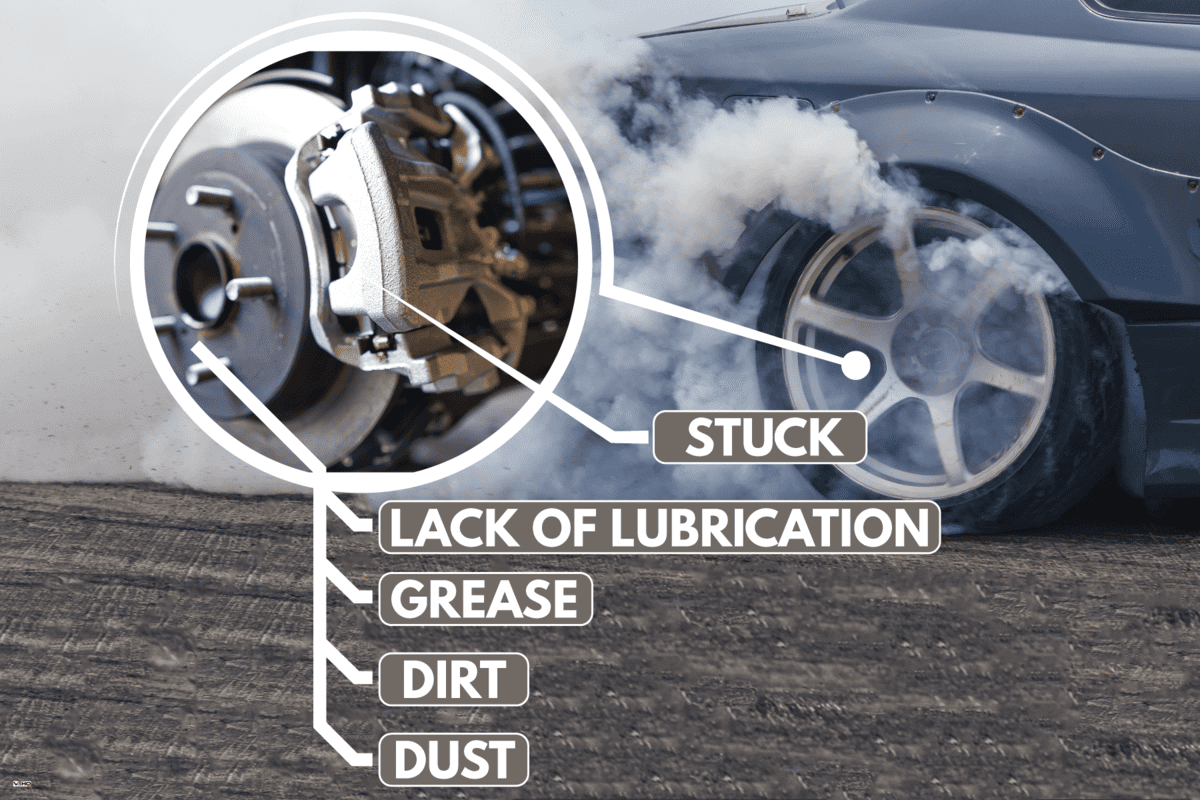
When it comes to this problem, your best bet is to have it looked at immediately by a mechanic to ensure that the problem isn't going to worsen as it can sometimes do. You should also check to see if the brakes are being used too much.
Alternatively, you can also clean and lubricate your brake caliper with grease and save yourself from spending money on a mechanic's time and effort. If you are unsure about how to clean your brake caliper, you can read this article here:
Creaking Noise When Braking – What Could Be Wrong?
Simply follow the instructions carefully, and you will be able to remove the brake caliper without any trouble.
Check out this brake parts cleaner on Amazon.
Do sticking brake pads also cause smoke?
Brake pads are supposed to last for a set period of time. If they haven't been changed for a long time, the brakes could begin to wear out and cause the brakes to become stuck.
In addition to a sticking brake caliper, a worn brake pad can also cause smoke to come out of the wheel well. With the brake pad worn down, the friction is not sufficient enough to prevent the wheel from spinning.
If you have a worn brake pad, you will be forced to press the brake pedal a little bit harder in order to slow down the vehicle. In this case, the rotating wheel causes heat and creates smoke when it comes into contact with the worn and smoothened-out brake pad.
When you look at the brake pad, you can see it is smoothened out, which means it has been worn down to the metal. When the metal part of the worn brake pad comes into contact with the wheel, the heat produced due to the two surfaces rubbing against each other could seize the brakes.
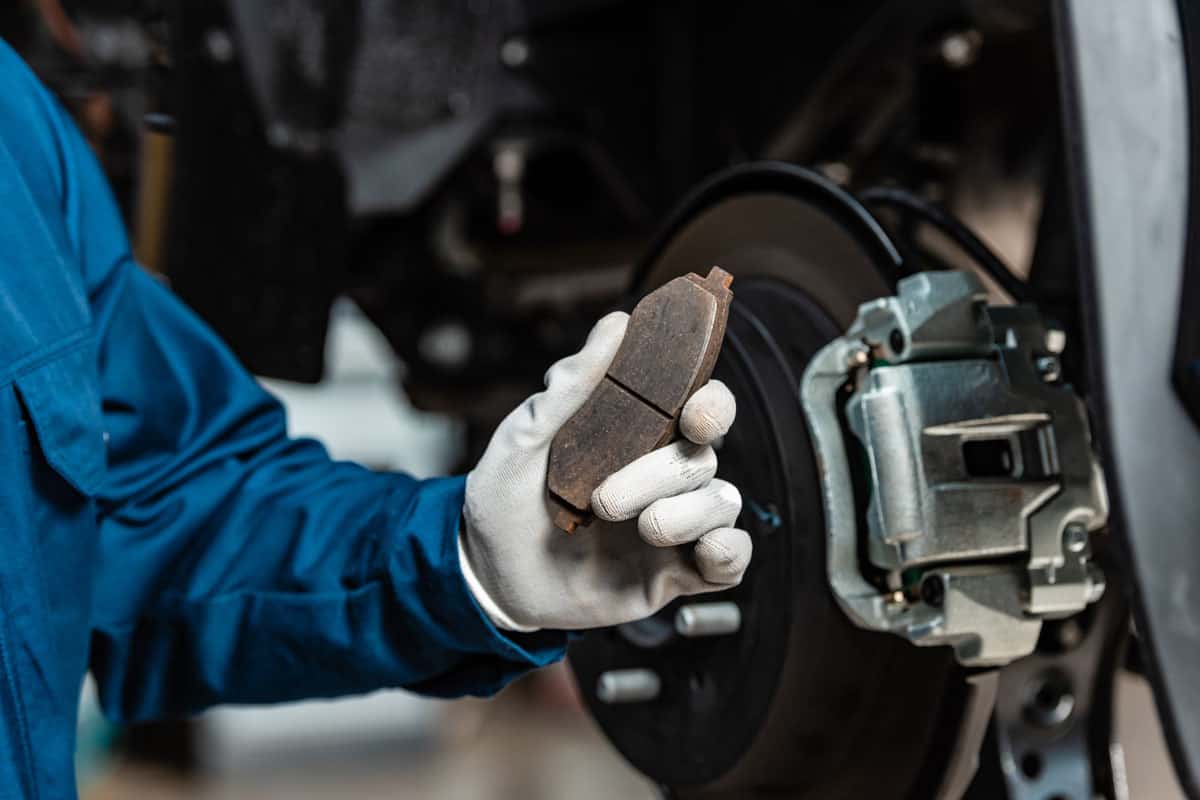
Damaged axle bearing
Every time you drive your car, you're running a tiny engine that turns your wheels, but what you don't see are the hundreds of parts that make up your suspension system. All those parts (including the axles) require lubrication.
The grease does its job by carrying away friction, heat, and wear, but it's not a magic bullet. If there is a problem with one of the suspension system's moving parts, the grease may not be able to adequately handle it. When the grease can't handle something, it breaks down and creates a chemical reaction that causes the smoke.
Worn cam chain tensioner seal
Oil could get into the exhaust system by means of a leak in the cam chain tensioner. It’s usually caused by a worn-out gasket or could simply be caused by a cam chain tensioner that is failing due to old age.
Once the chain tensioner gasket warps and disintegrates, the oil will find its way dripping into the muffler. Any slight movement in the chain and the oil will leak out of the gap. The oil will eventually burn up and cause smoke.
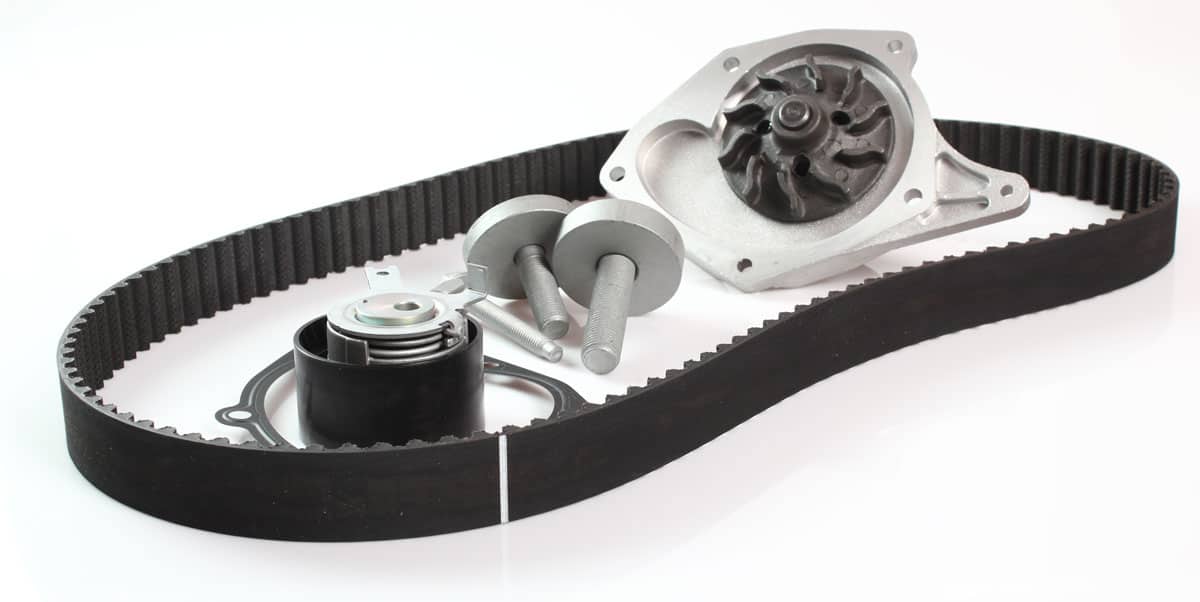
Can a Smoking Tire Catch Fire?
Yes, it does, but only if you deliberately burn out the tires. Tire burnout is the act of intentionally driving your car’s tires beyond their optimal operating temperature range, usually in order to melt the thread surface. Car racers do this to improve the tires' traction on the racing track.
When burning out tires, the car is kept stationary and the wheels are spun. The tires are only allowed to touch the ground close enough for friction to happen. Simply driving the car will not cause the tires to catch fire, even if you break the speed limit. It may cause the tires to smoke, but the heat generated by the friction is not enough to start a fire.
Ironically, a flat tire is more likely to catch fire because the metal rim of the wheel can rub against the road, creating sparks. The friction from the dragging wheel generates heat, which can ignite flammable material, such as debris on the road or the tire itself.
An ignition source, such as a cigarette, hot engine part, or electrical issue, can cause the sparks to ignite and start a fire.
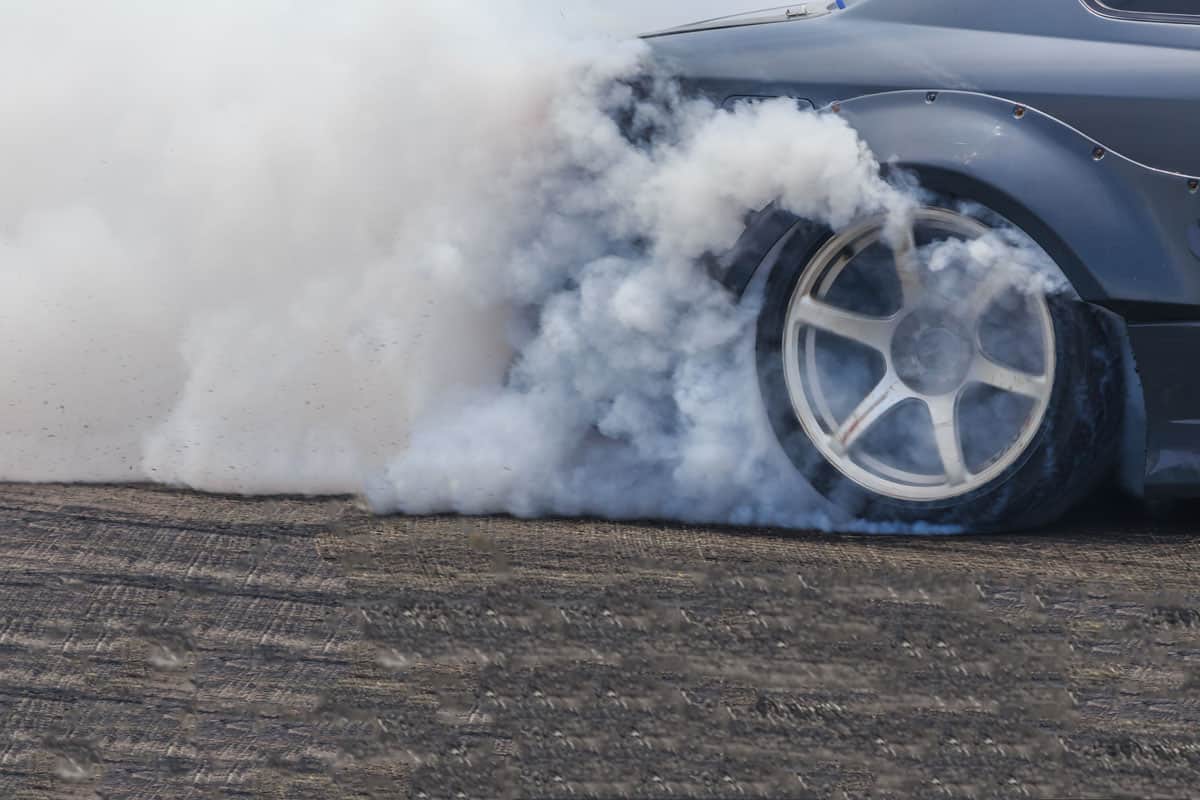
How To Prevent My Car's Brake From Overheating
To prevent overheating of your car's brakes, you can follow these steps:
- Drive at a moderate speed and avoid sudden stops or high-speed driving. This will help reduce the stress on your brakes and prevent overheating.
- Make sure your brake system is properly maintained and that the brake pads are in good condition. As mentioned earlier, worn-out brake pads can lead to excessive heat buildup in the brake system.
- Use the engine to slow down instead of relying solely on the brakes. This can help reduce the strain on the brake system and prevent overheating.
- Avoid towing heavy loads or driving in hilly terrain as these activities can put extra stress on the brakes and cause overheating.
- Give your brakes a break by driving on a highway or other open road where you can travel at a constant speed and avoid frequent braking.
In Closing
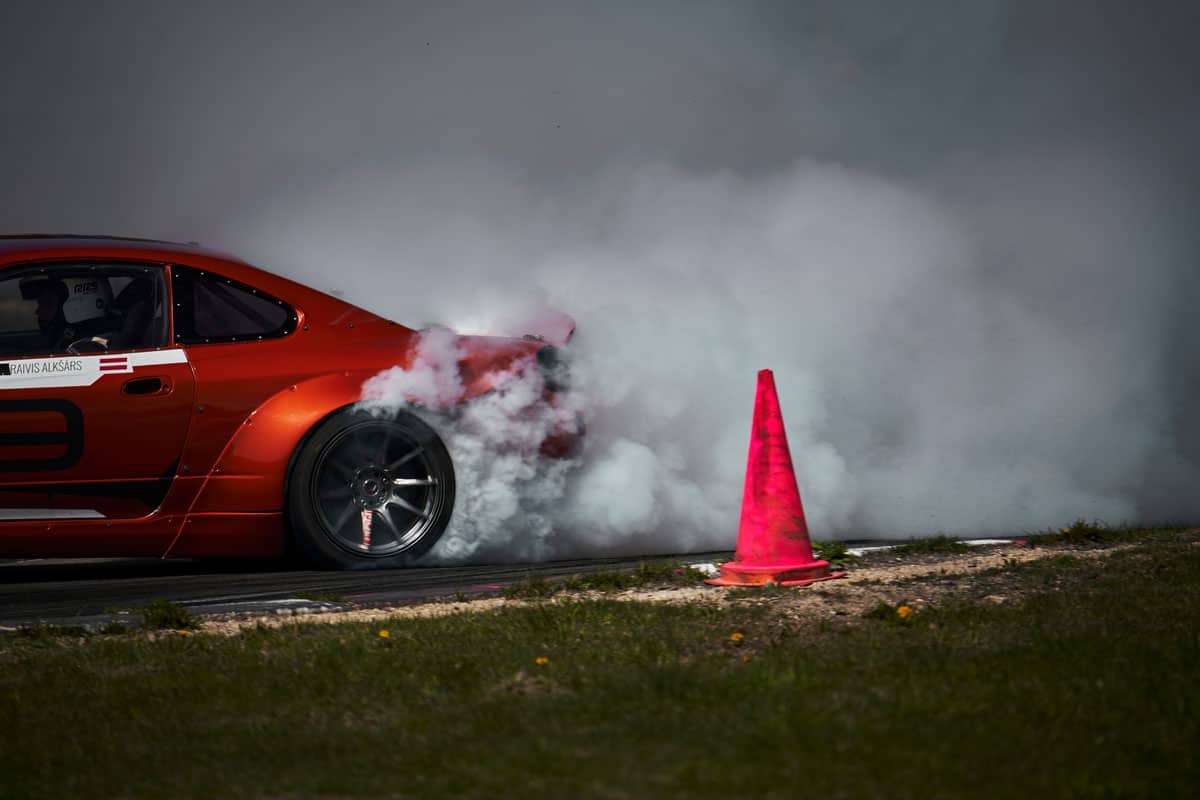
The smoke coming from a car's wheel well can be caused by various mechanical issues such as burning tires, leaking oil or coolant, a sticking brake caliper, damaged axle bearings, or a worn cam chain tensioner seal. It is important to determine the cause of the smoke in order to fix the issue and ensure a safe and reliable driving experience.
You might also like:

